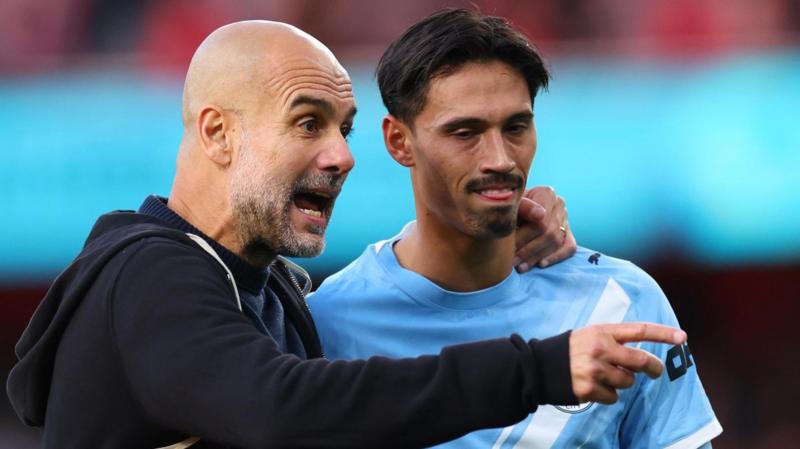Guardiola: Caring for Players Like a Parent Fuels Success



As the grueling football calendar continues to test the limits of even the most elite teams, Manchester City's manager, Pep Guardiola, has recently emphasized the paternal role he plays in managing his squad’s health and welfare. Guardiola, known for his philosophical musings on the beautiful game, likened his responsibilities to those of a parent, underscoring the nurturing aspect of his managerial duties amidst a demanding series of matches.
The nature of modern football with its relentless schedule—comprising domestic league games, cup competitions, and European matches—can wear teams thin. This season, Manchester City finds themselves once again chasing glory on multiple fronts, which brings with it an inevitable increase in travel, training, and the physical burden placed on players. It's within this context that Guardiola’s comments shed light on the less-discussed side of football: player welfare.
Guardiola’s approach goes beyond tactical setups and substitution strategies. He sees his role as holistic, caring for the mental and physical well-being of his team. This season, it involves a delicate balancing act—rotating the squad enough to maintain freshness without disrupting the team's rhythm and cohesion. When discussing the team's handling, Guardiola highlighted the importance of this balance, saying that careful management is crucial, especially when the games come thick and fast.
The concept of a manager being akin to a parent is not entirely new but is poignant coming from a coach with Guardiola’s pedigree. It emphasizes the evolution of football management into a role that requires emotional intelligence and a profound understanding of human psychology, as much as it demands tactical nous. Managers like Guardiola are increasingly viewed not just as tacticians but as custodians of their players’ holistic well-being.
Guardiola’s player-centric approach might be one reason why Manchester City has managed to sustain success over his tenure. Under his watch, City has captured multiple Premier League titles and continues to be a formidable force in both domestic and European competitions. His method of 'taking care' involves not only physical rest but also mental breaks, ensuring players are both physically able and mentally prepared to perform at their highest level.
This philosophy is reflected in how Guardiola manages training sessions, often tailored to manage the physical load, with full consideration of each player's condition. Moreover, the development of young talents under his guidance also speaks volumes about his fatherly approach. Players are not just assets to be deployed, but individuals who require support, guidance, and sometimes, protection.
In an era where the physical demands of the game often seem to overshadow the players' welfare, Guardiola’s views are a refreshing reminder of what lies at the heart of football—its people. Manchester City’s medical and sports science teams work in close concert with Guardiola to monitor players' fitness and mitigate risks, showing a club-wide commitment to player health that is as thorough as it is commendable.
Guardiola's paternal care is a beacon for managers who may feel the pressure to prioritize short-term results over long-term player health. His success, both in terms of trophies and player development, offers a potent counter-narrative to the win-at-all-costs approach sometimes seen in professional sports.
As Manchester City continues to navigate through their crowded fixture list, the football world watches and learns how sustainable success might not just be about having top players, but also about how well they are taken care of. In this high-stakes environment, Guardiola's parental philosophy could very well be the secret to both his and Manchester City’s enduring success.